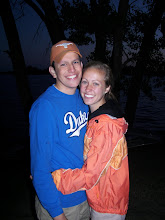
This week's post comes a bit belated but here nonetheless! A little update from KateLibraryLand, last weekend I had the opportunity to both attend as well as present twice at the Midwest Chapter Medical Library Association conference here in Madison, WI. I presented both a group research paper (about the American Family Children's Hospital's Family Resource Center) and an individual poster (about building complementary and alternative medicine collections in libraries). It was a fantastic time, and I met a lot of wonderful colleagues. It is exciting to have these experiences that will help me continue building my career in the direction of medical librarianship.
And now, back to our regularly scheduled programming. :)
Last week's class focused on e-reserves and the joy of negotiating demands from academia with an appropriate balance of copyright and protecting intellectual property. I have to admit that in thinking back on my college career that concluded only a short year and handful of months ago, I used to think I clearly remembered having e-reserves. However, I now struggle to recall exactly how they looked, how they were set up, or to what extent they were used. As an English major, the majority of my coursework was done using books, and any research in electronic journals was done for term papers, not in e-reserve fashion (again, I think...).
While one of my first courses at UW required students to purchase a course packet, the remaining courses since have all used e-reserves. As a user, I do prefer a course packet because $15-$20 beats $200 in books for a semester. This semester, however, I've gotten a chance to really compare the pros and cons from a user perspective of having e-reserves set up versus having to go find each article individually. While the convenience is hard to beat, there is an added benefit of improving library resources search skills when having to go into the system for individual articles.
But our ERM discussion was not about user opinions of e-reserves, but rather it focused on the technical aspect of e-reserves, the deciding what is ok to post and how long it can be there and under what circumstances. The director of UW's College Library visited class as a guest speaker, having served as the university's e-reserve guru for a number of years. I enjoyed hearing her insight into what is a much more complicated process than users have any idea. It seems like a simple situation: university library purchases subscription to journal, journal article is available, librarians collocate articles and post links to them for e-reserves. Easy, right? Not so much, because in order for that progression to flow successfully, there needs to have been consideration for e-reserves as early on as drawing up a license for the resource in the first place, not to mention the safeguards that needed to be created and limits/re-uses/etc. issues that come up as well.
In class discussions, I must admit, these things get overly complicated and I struggle to find actual footing on an "opinion" toward this issue. However, hearing our guest speaker talk through things with us really put e-reserves in a different light. It doesn't have to be an intricate, complicated web (though it most definitely seems to be) but rather a careful process of consideration, balance, and well-founded decision done in the best interest for users and the creators/owners of information.
We also discussed the Georgia State case, in which GSU had an ultra-lenient e-reserves policy and publishers responded with legal action, after which GSU changed its policy and proceeded to defend that policy as if it were the one originally cited for copyright and intellectual property violations. I think it called to attention the responsibility of universities to remain fair players in the scholarly literature scene/cycle. I've been looking for a response from Lesley Harris on the GSU case, but I haven't found one yet (will continue looking and if found, will post it here).
To be continued (in a much more prompt fashion)...



No comments:
Post a Comment